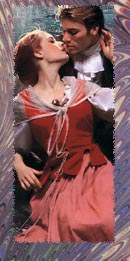



The Writer's Tools
![]() I love style and usage manuals and read them for fun. In the constellation of writers' tools, they sparkle. Dictionaries give us meanings, sense and shadings of the words that are our charcoal and our clay. Dictionaries are descriptive. They don't tell us why to choose a word or not or why anybody cares.
I love style and usage manuals and read them for fun. In the constellation of writers' tools, they sparkle. Dictionaries give us meanings, sense and shadings of the words that are our charcoal and our clay. Dictionaries are descriptive. They don't tell us why to choose a word or not or why anybody cares.
![]() Thesauruses are suggestive. They give us hues and tints, and are a little wicked: Used injudiciously (that is, without reference to a dictionary), they can lead us astray. The words they list are never exact synonyms of the word you are overusing. Synonyms are merely similar, for English is economical: no two words mean exactly the same thing.
Thesauruses are suggestive. They give us hues and tints, and are a little wicked: Used injudiciously (that is, without reference to a dictionary), they can lead us astray. The words they list are never exact synonyms of the word you are overusing. Synonyms are merely similar, for English is economical: no two words mean exactly the same thing.
![]() Grammars, which are proscriptive, bore me. They lay down the law and allow nit-picking grammarians to rise up. They say I can't put red with fuschia when I know darn well I can. Study them, by all means, but remember that fiction can take liberties.
Grammars, which are proscriptive, bore me. They lay down the law and allow nit-picking grammarians to rise up. They say I can't put red with fuschia when I know darn well I can. Study them, by all means, but remember that fiction can take liberties.
![]() Like grammars, style manuals are proscriptive, but they standardize the way we handle the details of our prose: how otherwise would we know to write a. m., a.m., A. M., or A.M.? Or a host of other refinements from punctuation to quotations to names, terms, and titles. The best of these manuals, the venerable Chicago Manual of Style, answers questions you haven't thought to ask. Most publishers follow its fine print.
Like grammars, style manuals are proscriptive, but they standardize the way we handle the details of our prose: how otherwise would we know to write a. m., a.m., A. M., or A.M.? Or a host of other refinements from punctuation to quotations to names, terms, and titles. The best of these manuals, the venerable Chicago Manual of Style, answers questions you haven't thought to ask. Most publishers follow its fine print.
![]() If style manuals can spare me egregious bloopers, usage manuals can set me free-if I know which ones to trust and why. Where grammars and style manuals proscribe, usage manuals explain. The best give the history of a rule and explain and justify departures from it.
If style manuals can spare me egregious bloopers, usage manuals can set me free-if I know which ones to trust and why. Where grammars and style manuals proscribe, usage manuals explain. The best give the history of a rule and explain and justify departures from it.
![]() The worst is the temptingly simple, vastly overrated Elements of Style by Strunk and White. Never mind that Mr. White is E. B. White, author of Charlotte's Web and arguably one of the best prose stylists of American English. If you have mastered all of his charming injunctions (especially "Omit needless words"), you're a step ahead of the pack, to be sure. But this little book for college students was never intended to help working, professional, published writers out of the corners we write ourselves into. And it doesn't.
The worst is the temptingly simple, vastly overrated Elements of Style by Strunk and White. Never mind that Mr. White is E. B. White, author of Charlotte's Web and arguably one of the best prose stylists of American English. If you have mastered all of his charming injunctions (especially "Omit needless words"), you're a step ahead of the pack, to be sure. But this little book for college students was never intended to help working, professional, published writers out of the corners we write ourselves into. And it doesn't.
![]() The two style manuals I trust the most are Follett's Modern American Usage (1966) and Webster's Dictionary of English Usage (1989). Follett can be daunting in its detail, but studying it will make you a better writer. Webster's too is detailed, but its histories of how rules evolved will help you make reasonable choices. Don't sit down to write without them.
The two style manuals I trust the most are Follett's Modern American Usage (1966) and Webster's Dictionary of English Usage (1989). Follett can be daunting in its detail, but studying it will make you a better writer. Webster's too is detailed, but its histories of how rules evolved will help you make reasonable choices. Don't sit down to write without them.
Home ![]() Wild Indigo
Wild Indigo ![]() His Stolen Bride
His Stolen Bride ![]() About Judith
About Judith ![]() Questions
Questions ![]() Contact
Contact ![]() Writing with Style
Writing with Style ![]() Events
Events ![]() Cat Crossing
Cat Crossing
Contents copyright © 2000-2013 by Judith Stanton. All rights reserved.